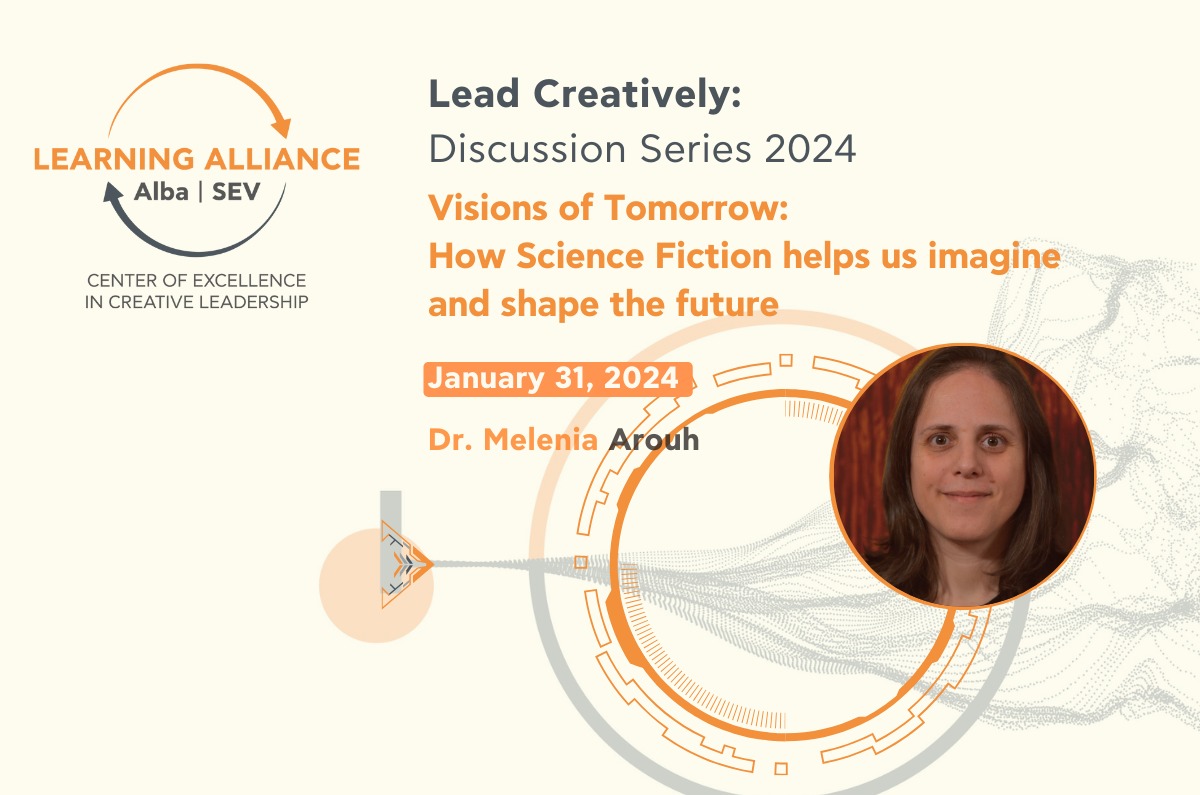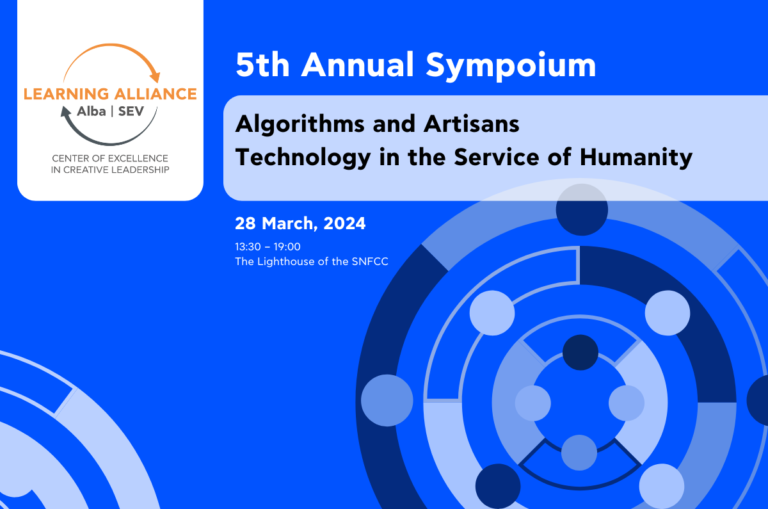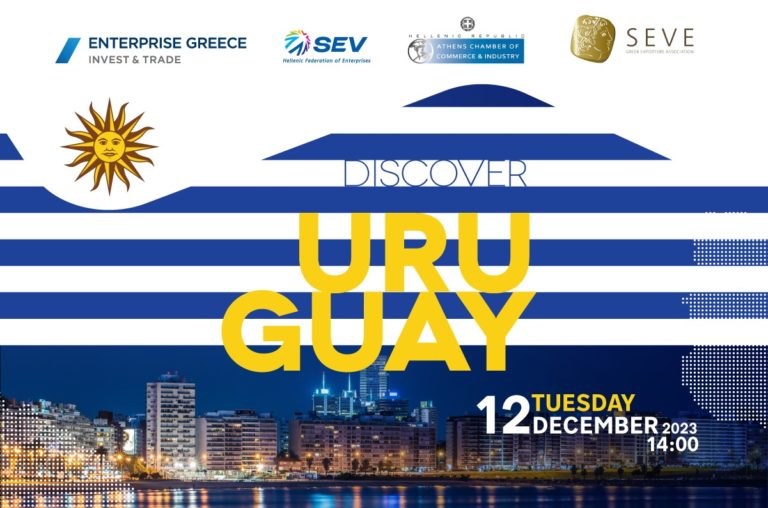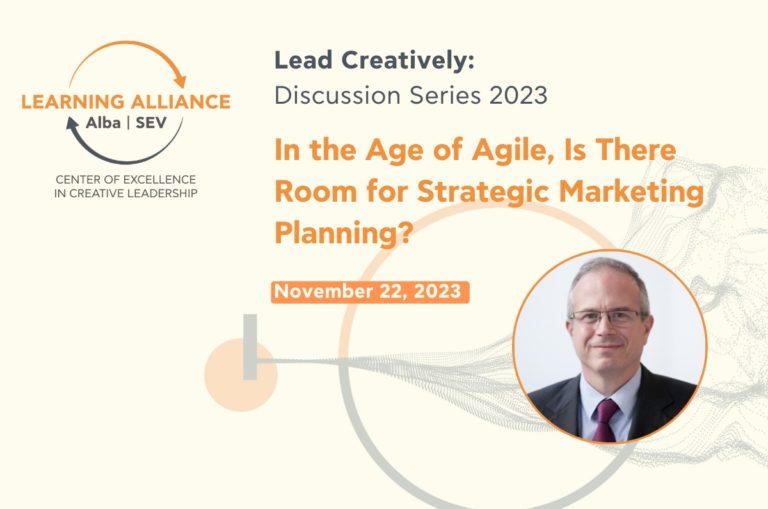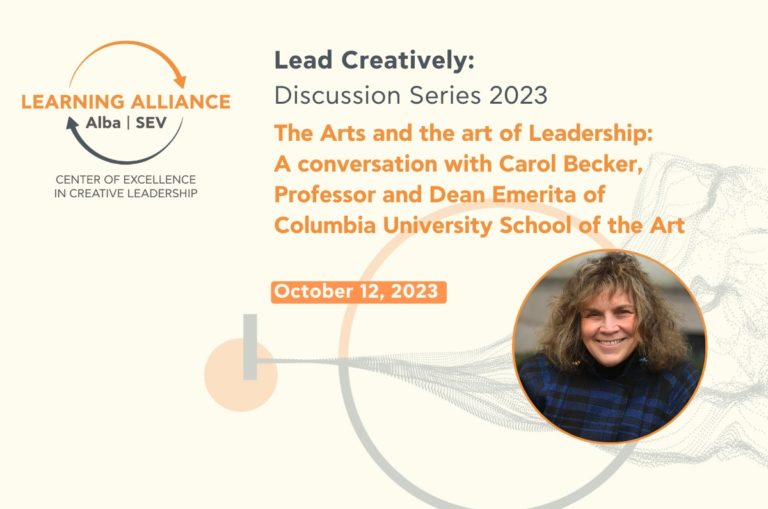Visions of Tomorrow: How Science Fiction helps us imagine and shape the future
The SEV Center of Excellence in Creative Leadership welcomes 2024 with a “Lead Creatively: Discussion Series” event on Wednesday, January 31, 2024, 18:00-19:30
The event will take place at Alba Graduate Business School (6-8 Xenias str, Athens, 11528) and will be held in the Greek language. You may attend in person or online, via livestream.
Register here https://resources.alba.acg.edu/sev-coe-cl-event-registration-jan2024
Imagine traveling back in time to the not so distant 2005 or 1995 or 1985. How would you explain to people back then our life in 2024? What would they think or feel about your stories? How might we react to the stories of a time traveler from, say, 2035 or 2045?
In our world of accelerated change, time is compressed and the future that once seemed distant, every so often becomes present to the surprise of many. Therefore, science fiction challenges us to think ahead about the future consequences of today’s choices.
Science fiction stories help us speak about the future. The storyteller invites us to take seriously certain hypotheses and test their logical conclusion. What will the world look like, how will society change and transform, and what role will machines have in our lives and survival? Each scenario takes its cue from a situation present today and projects it to the future, creating an endless array of possibilities. Films specifically, attempt to both narrate and visualize this future: the technologies, the lifestyles, the human race itself. Watching science fiction films allows for an immersive dive into these thought experiments. The audience joining such a journey gains glimpses into what could be and how the world may look like in a more or less distant future.
It is no surprise that current anxieties and moral panics feed into future projections, painting the world in all sorts of bleak dystopias. Dystopias have accompanied societies over the centuries, from Plato’s allegory of the Cave, to Hieronymus Bosch’s Garden of Earthly Delights, to James Cameron’s Skynet. Each dystopia serving a specific cultural moment and highlighting the pitfalls, paradoxes, and boundaries of our choices as far as imagination will allow us to see.
How do science fiction films manage to present these dystopias convincingly? What is there to learn from sci fi dystopias? Is there a moral benefit to imagining the worst-case scenario? What would it mean for science fiction films to depict utopias instead of dystopias? Would that be meaningful or even possible given our present state of pessimism and social outrage?
About the speaker
Melenia Arouh, Ph.D., is an associate professor at Deree – The American College of Greece, teaching courses since 2005 in the Communication, Philosophy and, most recently, Cinema Studies programs. Her current teaching includes such courses as Philosophy and Cinema, Aesthetics, American Cinema, and Film Analysis. Most recently she led the validation of the new Cinema Studies BA at Deree College and served as the head of the Communication department. Her research interests are in film, television, and digital media, and she is primarily interested in interdisciplinary scholarship that links film and media theory with philosophical enquiry. Specifically, she has published articles and chapters on cinematic space, aesthetics and film form, moral and cultural interpretations of films, online fandoms and toxicity, and the impact of Hamilton: An American Musical on culture and aesthetics.

